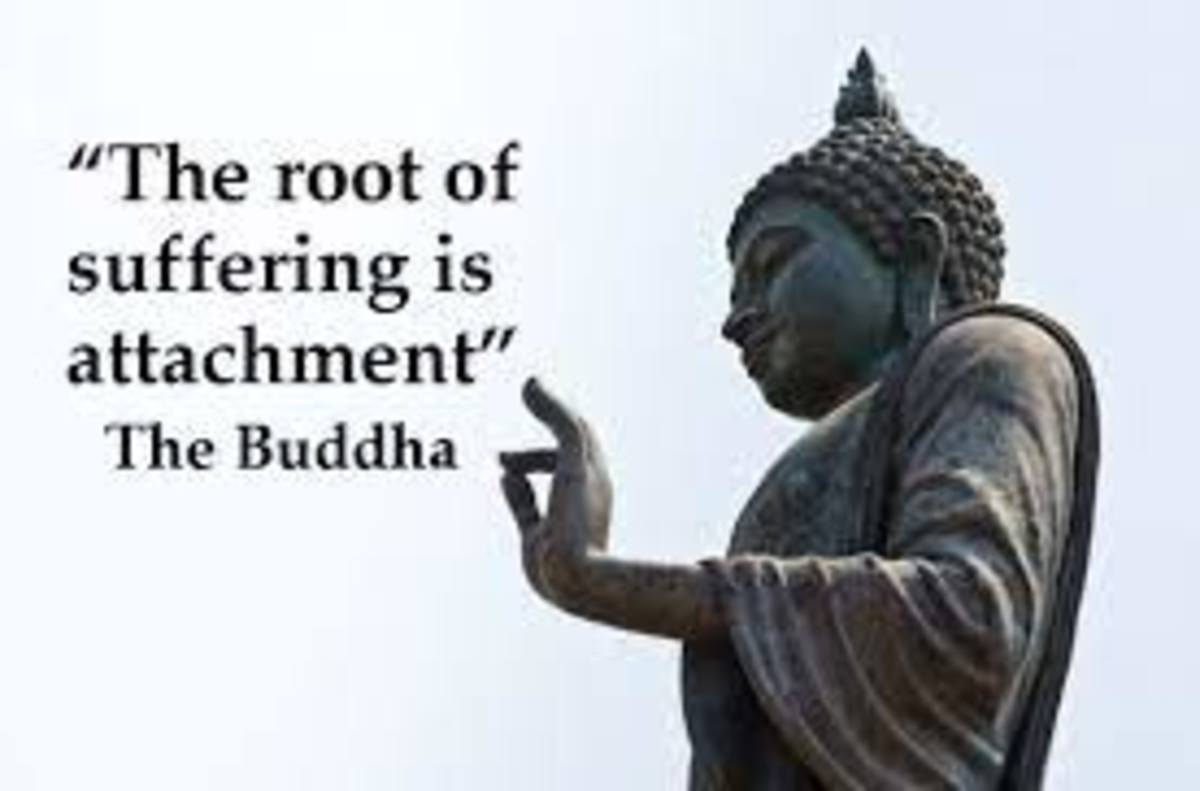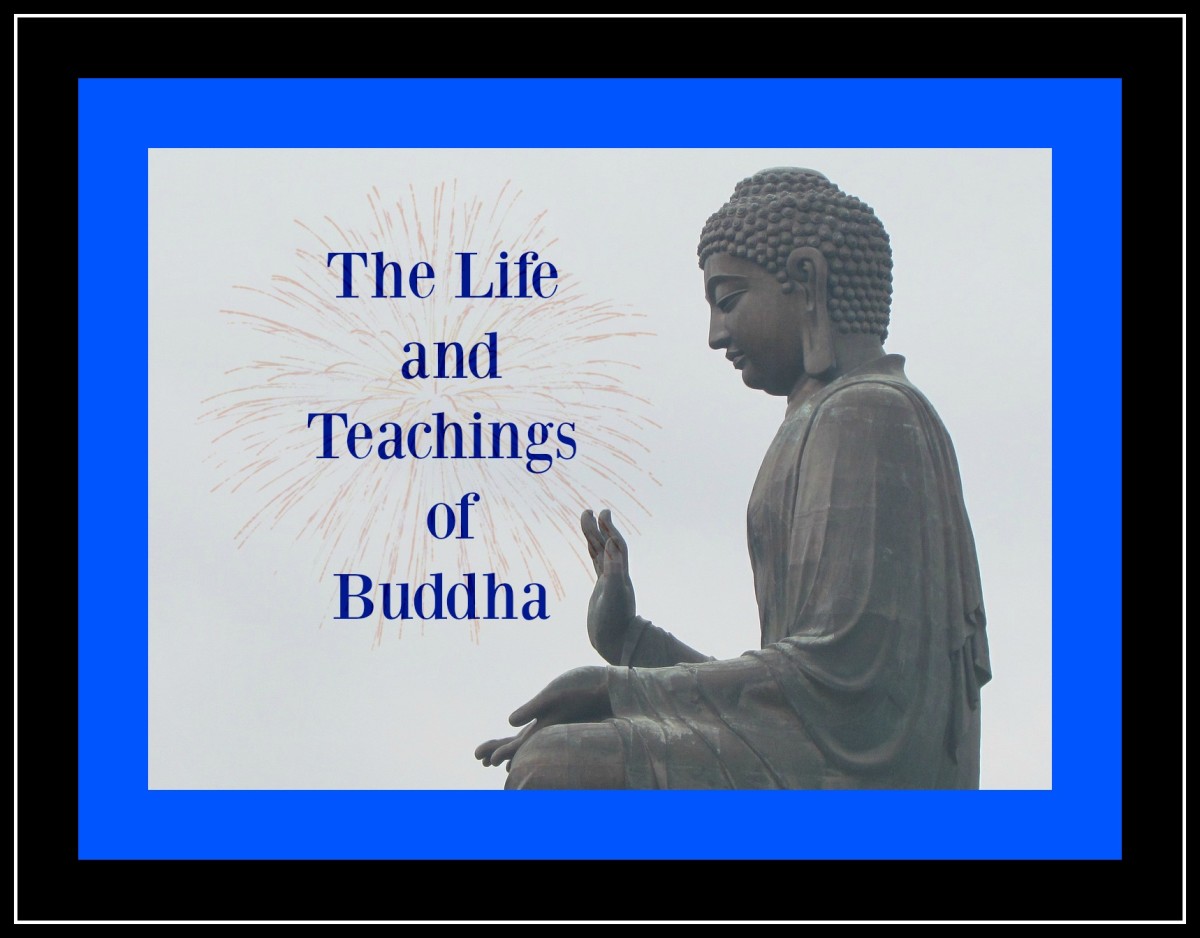The Four Noble Truths of Buddism
1.The Four noble Truths
The four noble truths can be thought of as the central ideas that surround the Buddhist religion. They are basically the four pillars upon which the whole Buddhist religion culture is founded. These four are:
a) There is suffering
According to Buddha, it is not possible for a person to live without suffering of some kind. Rather, humans have to endure the physical suffering such as sickness, tiredness, pain, lack of basic needs and eventually death. Psychological suffering such as frustrations, stress, loneliness, disappointment, embarrassment, fear and much more are normal and part of life.
b)There is a cause for Suffering
This concept dictates that every suffering is brought about by man’s craving. Taking a look at psychological suffering, it is easy to relate it with craving due to the fact that it happens in the mind. Once we really need something but can’t find it, we become frustrated. When we expect someone to live up to our own expectations and they are unable to do so, we tend to feel down and frustrated. When we feel like everybody else has abandoned us and we have no one to stay or speak with, we feel lonely. In essence, the second noble truth is for the idea that simply getting what we want does not guarantee that we will be happy. Therefore, we should adjust our needs and wants because they can derive us of happiness and contentment.
c) There is the Cessation of Suffering
This truth states that humans can overcome suffering and attain happiness. This is probably the most significant and reassuring among the four noble truths since Buddha assures humans that despite the presence of suffering, happiness can be achieved at long last. As such, human should give up relentless wanting and the process of life patiently and without fear because we have hope of attaining happiness. This way, we cannot be obsessed with the need to satisfy our wants. Buddha calls this process Nirvana.
d)There is the Eightfold path which leads to the cessation of Suffering
This noble truth is about the path that enables humans to overcome suffering. The path consists of perfect understanding, meaning there is perfect action, speech, livelihood, mindfulness, and thought. A Buddhist has to practice these things continuously until they are complete because they contain all that a person requires in order to live a good life.
2. Samsara
Samsara is basically the process or tendency to create worlds and then move into them. This creating and moving, according to Buddhism, happens all the time. In essence, it means we are creating ourselves. This is because a person is viewed as a process of mental and physical phenomena. Buddha teaches that whatever man thinks of as his permanent self is real fundamentally but is being regenerated continually. In this light, for each moment the human body, idea, sensation, belief, consciousness and conceptualization work harmoniously to create the impression of a permanent, distinctive “me” aspect. Similarly, Buddhism teaches that the “outer” reality of human is the projection of his “inner” reality. As such, every human being is in a way, living in their own world, one they create with their perceptions and thoughts. Rebirth can therefore be thought of as something which happens from one life to the other and from one moment to the next. Rebirth in Buddhism is therefore more like the effect of life which is moving forward into other new lives, and not the transmigration of individual souls to newly born bodies as many other religions describe it. Additionally, according to the four truths, we human being are basically creating samsara as we live our daily lives.
3. The Karma Concept
Karma simply means action in Buddhism. It is what energizes the circle the ideas of rebirth and samsara. The karma concept states that certain actions, whether they are good, bad, intended or unintended, eventually come back to us as a repercussion for our acts in either the present or later life. It is believed that every action originates from the mind and as such is the intention of the doer. It is the psychological commitment which tends to determine the consequences of our actions at a later stage. In this light, it is logical to stipulate that good actions will bring positive results and vice versa.
Conclusion
In conclusion, to the larger extend, Buddhism is not simply what people want it to be. It is good to understand that although the teachings and concepts of Buddhism should be accepted not on blind faith but on factual truths, to understand what Buddha taught is the most important part of the Buddha discipline. For those who do not consider themselves Buddhists, Buddhism is a religion just like any other even though it is focused much on psychological matters. What is more, Buddhist ideas play a very vital role in helping human better understand the world. The noble truths for instance are a good way to think about life and how to live it well and as such are significant to any human.








